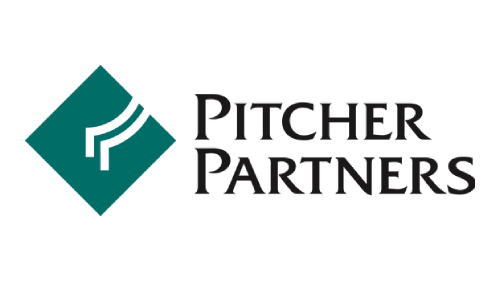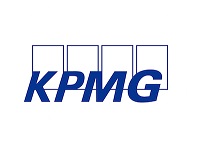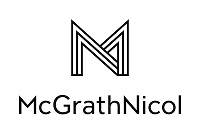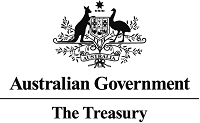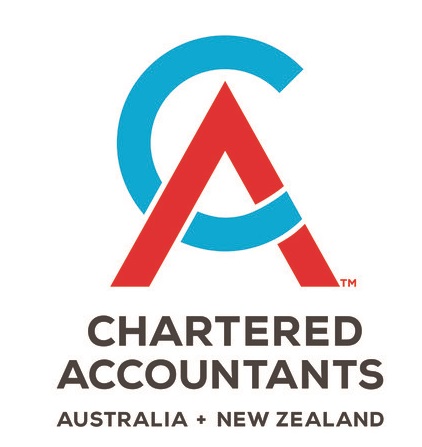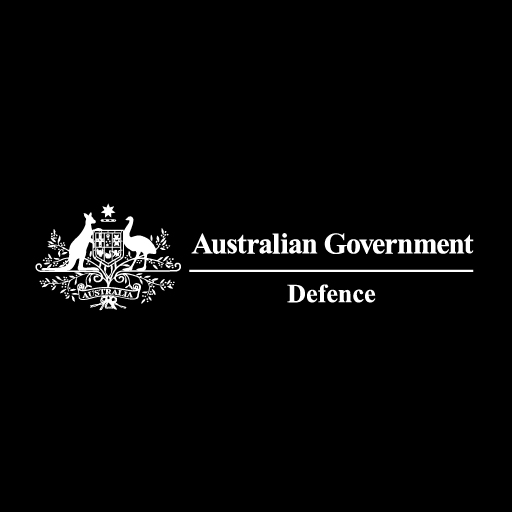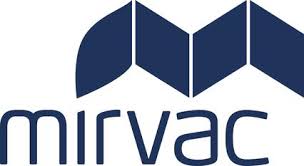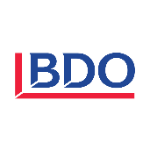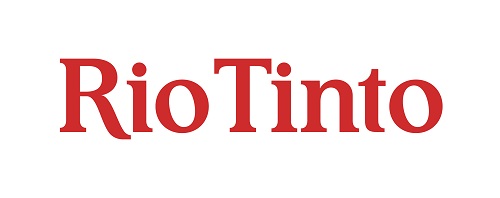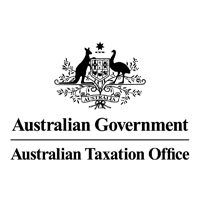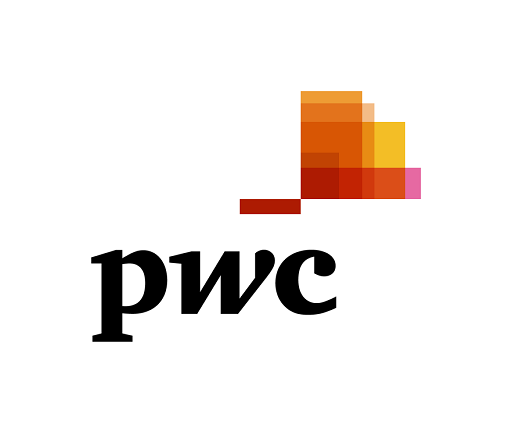Generalist Jobs
Generalist jobs accept a wide range of disciplines including Accounting
Graduate Jobs
Available locations
- Adelaide
- Brisbane
- Canberra
- Darwin
- Geelong
- Gold Coast
- Hobart
- Melbourne
- Newcastle
- Paramatta
- Perth
- Sydney
- Townsville
- Wollongong
Hires applicants with degrees in
- Accounting
- Actuarial Studies
- Banking and Finance
- Business and Commerce
- Economics
Everyone’s career is different, and we support unique growth and pathways. With a range of disciplines and specialities, you can start in one place and go almost anywhere as you build your career with KPMG.
Graduate Jobs
Available locations
- Adelaide
- Brisbane
- Canberra
- Darwin
- Geelong
- Gold Coast
- Hobart
- Melbourne
- Newcastle
- Paramatta
- Perth
- Sydney
- Townsville
- Wollongong
Hires applicants with degrees in
- Accounting
- Actuarial Studies
- Banking and Finance
- Business and Commerce
- Law
Everyone’s career is different, and we support unique growth and pathways. With a range of disciplines and specialities, you can start in one place and go almost anywhere as you build your career with KPMG.
Graduate Jobs
Available locations
- Adelaide
- Auckland
- Brisbane
- Canberra
- Darwin
- Hobart
- Melbourne
- Perth
- Regional ACT
- Regional New South Wales
- Regional Northern Territory
- Regional Queensland
- Regional South Australia
- Regional Tasmania
- Regional Victoria
- Regional Western Australia
- Sydney
Hires applicants with degrees in
- Accounting
- Actuarial Studies
- Administration
- Banking and Finance
- Business and Commerce
- Compliance
- Computer Science
- Consulting
- Cyber Security
- Data Science and Analytics
- Design and User Experience
- Economics
- Engineering Software
- Funds Management
- Information Systems
- Information Technology
- Insurance
- Investment Banking
- Management
- Project Management
- Telecommunications
Interested in joining one of our graduate or internship programs this year? We’re excited to be partnering with GradConnection to bring you Meet the Employers, a virtual speed networking event where we'll share all you need to know about getting a job with Amazon.
Graduate Jobs
Available locations
- Adelaide
- Brisbane
- Canberra
- Darwin
- Geelong
- Gold Coast
- Hobart
- Melbourne
- Newcastle
- Paramatta
- Perth
- Sydney
- Townsville
- Wollongong
Hires applicants with degrees in
- Accounting
- Banking and Finance
- Computer Science
- Cyber Security
- Law
- Mathematics
Everyone’s career is different, and we support unique growth and pathways. With a range of disciplines and specialities, you can start in one place and go almost anywhere as you build your career with KPMG.
Event
Available locations
- Adelaide
- Brisbane
- Canberra
- Darwin
- Hobart
- Melbourne
- Perth
- Regional New South Wales
- Regional Northern Territory
- Regional Queensland
- Regional South Australia
- Regional Tasmania
- Regional Victoria
- Regional Western Australia
- Sydney
Hires applicants with degrees in
- Accounting
- Actuarial Studies
- Administration
- Agriculture
- Architecture
- Arts and Humanities
- Aviation
- Banking and Finance
- Business and Commerce
- Communications
- Compliance
- Computer Science
- Construction
- Consulting
- Customer Service
- Cyber Security
- Data Science and Analytics
- Defence
- Design and User Experience
- Economics
- Education
- Engineering
- Engineering Aerospace/Aeronautical
- Engineering Chemical/Processing
- Engineering Civil/Structural
- Engineering Electrical
- Engineering Environmental
- Engineering Geotechnical
- Engineering Mechanical
- Engineering Mechatronics
- Engineering Mining
- Engineering Petroleum
- Engineering Software
- Environment
- Fast Moving Consumer Goods
- Food Technology
- Funds Management
- Geology
- Government
- Horticulture
- Hospitality, Sports and Tourism
- Human Resources
- Industrial Design
- Information Systems
- Information Technology
- Insurance
- Intelligence
- Investment Banking
- Journalism
- Law
- Logistics and Supply Chain
- Management
- Marine Biology
- Marketing and Sales
- Mathematics
- Media and Advertising
- Mining Oil and Gas
- Operations
- Physics
- Planning and Surveying
- Procurement
- Project Management
- Property
- Recruitment
- Research and Development
- Retail
- Science
- Statistics
- Telecommunications
- Transport
- Utilities
Nestle is empowering young innovators to shape the future of food.
Graduate Jobs
Available locations
- Adelaide
- Brisbane
- Canberra
- Darwin
- Hobart
- Melbourne
- Perth
- Regional ACT
- Regional New South Wales
- Regional Northern Territory
- Regional Queensland
- Regional South Australia
- Regional Tasmania
- Regional Victoria
- Regional Western Australia
- Sydney
Hires applicants with degrees in
- Accounting
- Business and Commerce
- Engineering
- Human Resources
- Information Systems
- Information Technology
- Logistics and Supply Chain
Turn on notifications for Toll's Graduate Jobs and be one of the first to apply when applications open.
Graduate Jobs
Available locations
- Adelaide
- Australia
- Brisbane
- Canberra
- Darwin
- Hobart
- Melbourne
- North Sydney
- Perth
- Regional ACT
- Regional New South Wales
- Regional Northern Territory
- Regional Queensland
- Regional South Australia
- Regional Tasmania
- Regional Victoria
- Regional Western Australia
- Sydney
Hires applicants with degrees in
- Accounting
- Actuarial Studies
- Administration
- Agriculture
- Architecture
- Arts and Humanities
- Aviation
- Banking and Finance
- Business and Commerce
- Communications
- Compliance
- Computer Science
- Construction
- Consulting
- Customer Service
- Cyber Security
- Data Science and Analytics
- Defence
- Design and User Experience
- Economics
- Education
- Engineering
- Engineering Aerospace Aeronautical
- Engineering Chemical Processing
- Engineering Civil Structural
- Engineering Electrical
- Engineering Environmental
- Engineering Geotechnical
- Engineering Mechanical
- Engineering Mechatronics
- Engineering Mining
- Engineering Petroleum
- Engineering Software
- Environment
- Exercise Physiology
- Fast Moving Consumer Goods
- Food Technology
- Funds Management
- Geology
- Government
- Health
- Health Policy and Administration
- Horticulture
- Hospitality Sports and Tourism
- Human Resources
- Industrial Design
- Information Systems
- Information Technology
- Insurance
- Intelligence
- Investment Banking
- Journalism
- Law
- Logistics and Supply Chain
- Management
- Marine Biology
- Marketing and Sales
- Mathematics
- Media and Advertising
- Medical and Biomedical Science
- Medicine
- Mining Oil and Gas
- Nursing and Midwifery
- Operations
- Pharmacy and Pharmacology
- Physics
- Physio and Occupational Therapy
- Planning and Surveying
- Procurement
- Project Management
- Property
- Psychology and Counselling
- Radiography and Medical Imaging
- Recruitment
- Research and Development
- Retail
- Science
- Speech Pathology
- Statistics
- Telecommunications
- Transport
- Utilities
Turn on notifications for CommBank's Graduate Jobs and be one of the first to apply when applications open.
Graduate Jobs
Available locations
- Adelaide
- Brisbane
- Canberra
- Darwin
- Hobart
- Melbourne
- Perth
- Regional ACT
- Regional New South Wales
- Regional Northern Territory
- Regional Queensland
- Regional South Australia
- Regional Tasmania
- Regional Victoria
- Regional Western Australia
- Sydney
Hires applicants with degrees in
- Accounting
- Banking and Finance
- Business and Commerce
- Information Technology
- Mathematics
Turn on notifications for McGrathNicol's Graduate Jobs and be one of the first to apply when applications open.
Graduate Jobs
Available locations
- Adelaide
- Brisbane
- Canberra
- Darwin
- Hobart
- Melbourne
- Melbourne - CBD and Inner Suburbs, AU
- Perth
- Regional ACT
- Regional New South Wales
- Regional Northern Territory
- Regional Queensland
- Regional South Australia
- Regional Tasmania
- Regional Victoria
- Regional Western Australia
- Sydney
Hires applicants with degrees in
- Accounting
- Arts and Humanities
- Banking and Finance
- Business and Commerce
- Economics
- Government
- Information Technology
- Law
- Mathematics
- Property
Turn on notifications for Department of the Treasury's Graduate Jobs and be one of the first to apply when applications open.
Graduate Jobs
Available locations
- Adelaide
- Brisbane
- Cairns
- Canberra
- Darwin
- Hobart
- Melbourne
- Perth
- Regional ACT
- Regional New South Wales
- Regional Northern Territory
- Regional Queensland
- Regional South Australia
- Regional Tasmania
- Regional Victoria
- Regional Western Australia
- Sydney
Hires applicants with degrees in
- Accounting
- Banking and Finance
- Business and Commerce
Turn on notifications for Grant Thornton's Graduate Jobs and be one of the first to apply when applications open.
Graduate Jobs
Available locations
- Adelaide
- Auckland
- Australia
- Brisbane
- Canberra
- Christchurch
- Darwin
- Hobart
- Melbourne
- New Zealand
- Perth
- Regional ACT
- Regional New South Wales
- Regional Northern Territory
- Regional Queensland
- Regional South Australia
- Regional Tasmania
- Regional Victoria
- Regional Western Australia
- Sydney
- Wellington
Hires applicants with degrees in
- Accounting
- Administration
- Business and Commerce
- Consulting
- Management
Turn on notifications for Chartered Accountants Australia and New Zealand's Graduate Jobs and be one of the first to apply when applications open.
Graduate Jobs
Available locations
- Adelaide
- Brisbane
- Canberra
- Darwin
- Hobart
- Melbourne
- Perth
- Regional ACT
- Regional New South Wales
- Regional Northern Territory
- Regional Queensland
- Regional South Australia
- Regional Tasmania
- Regional Victoria
- Regional Western Australia
- Sydney
Hires applicants with degrees in
- Accounting
- Banking and Finance
- Business and Commerce
- Engineering
- Information Systems
- Information Technology
- Logistics and Supply Chain
- Marketing and Sales
Turn on notifications for Gradability's Graduate Jobs and be one of the first to apply when applications open.
Graduate Jobs
Available locations
- Adelaide
- Bendigo
- Brisbane
- Canberra
- Darwin
- Melbourne
- Newcastle
- Perth
- Sydney
Hires applicants with degrees in
- Accounting
- Actuarial Studies
- Administration
- Agriculture
- Architecture
- Arts and Humanities
- Aviation
- Banking and Finance
- Business and Commerce
- Communications
- Compliance
- Computer Science
- Construction
- Consulting
- Customer Service
- Cyber Security
- Data Science and Analytics
- Defence
- Design and User Experience
- Economics
- Education
- Engineering
- Engineering Aerospace Aeronautical
- Engineering Chemical Processing
- Engineering Civil Structural
- Engineering Electrical
- Engineering Environmental
- Engineering Geotechnical
- Engineering Mechanical
- Engineering Mechatronics
- Engineering Mining
- Engineering Petroleum
- Engineering Software
- Environment
- Exercise Physiology
- Fast Moving Consumer Goods
- Food Technology
- Funds Management
- Geology
- Government
- Health
- Health Policy and Administration
- Horticulture
- Hospitality Sports and Tourism
- Human Resources
- Industrial Design
- Information Systems
- Information Technology
- Insurance
- Intelligence
- Investment Banking
- Journalism
- Law
- Logistics and Supply Chain
- Management
- Marine Biology
- Marketing and Sales
- Mathematics
- Media and Advertising
- Medical and Biomedical Science
- Medicine
- Mining Oil and Gas
- Nursing and Midwifery
- Operations
- Pharmacy and Pharmacology
- Physics
- Physio and Occupational Therapy
- Planning and Surveying
- Procurement
- Project Management
- Property
- Psychology and Counselling
- Radiography and Medical Imaging
- Recruitment
- Research and Development
- Retail
- Science
- Speech Pathology
- Statistics
- Telecommunications
- Transport
- Utilities
Turn on notifications for Department of Defence's Graduate Jobs and be one of the first to apply when applications open.
Graduate Jobs
Available locations
- Adelaide
- Brisbane
- Canberra
- Darwin
- Hobart
- Melbourne
- New South Wales
- Perth
- Regional New South Wales
- Regional Northern Territory
- Regional Queensland
- Regional South Australia
- Regional Tasmania
- Regional Victoria
- Regional Western Australia
- Sydney
Hires applicants with degrees in
- Accounting
- Banking and Finance
- Business and Commerce
- Design and User Experience
- Economics
- Engineering
- Engineering Civil Structural
- Information Technology
- Marketing and Sales
- Mathematics
- Property
Turn on notifications for Mirvac's Graduate Jobs and be one of the first to apply when applications open.
Graduate Jobs
Available locations
- Adelaide
- Brisbane
- Cairns
- Canberra
- Darwin
- Hobart
- Melbourne
- Paramatta
- Parramatta
- Perth
- Regional ACT
- Regional New South Wales
- Regional Northern Territory
- Regional Queensland
- Regional South Australia
- Regional Tasmania
- Regional Victoria
- Regional Western Australia
- Sunshine Coast
- Sydney
Hires applicants with degrees in
- Accounting
- Actuarial Studies
- Administration
- Banking and Finance
- Business and Commerce
- Compliance
- Construction
- Consulting
- Cyber Security
- Data Science and Analytics
- Defence
- Economics
- Engineering
- Engineering Aerospace Aeronautical
- Engineering Environmental
- Engineering Geotechnical
- Engineering Petroleum
- Food Technology
- Funds Management
- Geology
- Government
- Human Resources
- Information Technology
- Insurance
- Intelligence
- Investment Banking
- Law
- Management
- Marine Biology
- Medical and Biomedical Science
- Physics
- Project Management
- Recruitment
- Research and Development
- Science
- Telecommunications
Turn on notifications for BDO's Graduate Jobs and be one of the first to apply when applications open.
Graduate Jobs
Available locations
- Adelaide
- Brisbane
- Canberra
- Darwin
- Gunnedah
- Hobart
- Melbourne
- Narrabri
- Perth
- Regional ACT
- Regional New South Wales
- Regional Northern Territory
- Regional Queensland
- Regional South Australia
- Regional Tasmania
- Regional Victoria
- Regional Western Australia
- Sydney
Hires applicants with degrees in
- Accounting
- Banking and Finance
- Engineering
- Engineering Chemical Processing
- Engineering Civil Structural
- Engineering Electrical
- Engineering Mechanical
- Engineering Mechatronics
- Health
- Science
Turn on notifications for Whitehaven Coal's Graduate Jobs and be one of the first to apply when applications open.
Graduate Jobs
Available locations
- Adelaide
- Brisbane
- Canberra
- Darwin
- Gladstone
- Hobart
- Invercargill
- Launceston
- Melbourne
- New Zealand
- Northern Territory
- Perth
- Regional ACT
- Regional New South Wales
- Regional Northern Territory
- Regional Queensland
- Regional South Australia
- Regional Tasmania
- Regional Victoria
- Regional Western Australia
- Sydney
- Weipa
Hires applicants with degrees in
- Accounting
- Actuarial Studies
- Administration
- Agriculture
- Architecture
- Arts and Humanities
- Aviation
- Banking and Finance
- Business and Commerce
- Communications
- Compliance
- Computer Science
- Construction
- Consulting
- Customer Service
- Cyber Security
- Data Science and Analytics
- Defence
- Design and User Experience
- Economics
- Education
- Engineering
- Engineering Aerospace Aeronautical
- Engineering Chemical Processing
- Engineering Civil Structural
- Engineering Electrical
- Engineering Environmental
- Engineering Geotechnical
- Engineering Mechanical
- Engineering Mechatronics
- Engineering Mining
- Engineering Petroleum
- Engineering Software
- Environment
- Fast Moving Consumer Goods
- Food Technology
- Funds Management
- Geology
- Government
- Horticulture
- Hospitality Sports and Tourism
- Human Resources
- Industrial Design
- Information Systems
- Information Technology
- Insurance
- Intelligence
- Investment Banking
- Journalism
- Law
- Logistics and Supply Chain
- Management
- Marine Biology
- Marketing and Sales
- Mathematics
- Media and Advertising
- Medical and Biomedical Science
- Mining Oil and Gas
- Operations
- Physics
- Planning and Surveying
- Procurement
- Project Management
- Property
- Recruitment
- Research and Development
- Retail
- Science
- Statistics
- Telecommunications
- Transport
- Utilities
Turn on notifications for Rio Tinto's Graduate Jobs and be one of the first to apply when applications open.
Graduate Jobs
Available locations
- Adelaide
- Albury
- Brisbane
- Canberra
- Darwin
- Geelong
- Gosford
- Hobart
- Melbourne
- Newcastle
- North Sydney
- Paramatta
- Parramatta
- Penrith
- Perth
- Queensland
- Regional ACT
- Regional New South Wales
- Regional Northern Territory
- Regional Queensland
- Regional South Australia
- Regional Tasmania
- Regional Victoria
- Regional Western Australia
- Sydney
- Townsville
- Wollongong
Hires applicants with degrees in
- Accounting
- Arts and Humanities
- Banking and Finance
- Business and Commerce
- Computer Science
- Design and User Experience
- Economics
- Engineering
- Engineering Software
- Government
- Information Systems
- Information Technology
- Law
- Marketing and Sales
- Mathematics
Turn on notifications for Australian Taxation Office's Graduate Jobs and be one of the first to apply when applications open.
Graduate Jobs
Available locations
- Adelaide
- Australia
- Brisbane
- Canberra
- Darwin
- Melbourne
- Newcastle
- Parramatta
- Perth
- Sydney
Hires applicants with degrees in
- Accounting
- Banking and Finance
- Business and Commerce
- Computer Science
- Data Science and Analytics
- Engineering
- Information Systems
- Information Technology
- Law
- Marketing and Sales
- Mathematics
Turn on notifications for PwC's Graduate Jobs and be one of the first to apply when applications open.
Graduate Jobs
Available locations
- Adelaide
- Auckland
- Brisbane
- Darwin
- Melbourne
- New Zealand
- Perth
- Regional New South Wales
- Regional Northern Territory
- Regional Queensland
- Regional South Australia
- Regional Victoria
- Regional Western Australia
- Sydney
- Wellington
- Wollongong
Hires applicants with degrees in
- Accounting
- Business and Commerce
- Economics
- Engineering
- Engineering Electrical
- Engineering Mechanical
- Human Resources
Turn on notifications for Ventia's Graduate Jobs and be one of the first to apply when applications open.
There is no Jobs Guide for this search.

